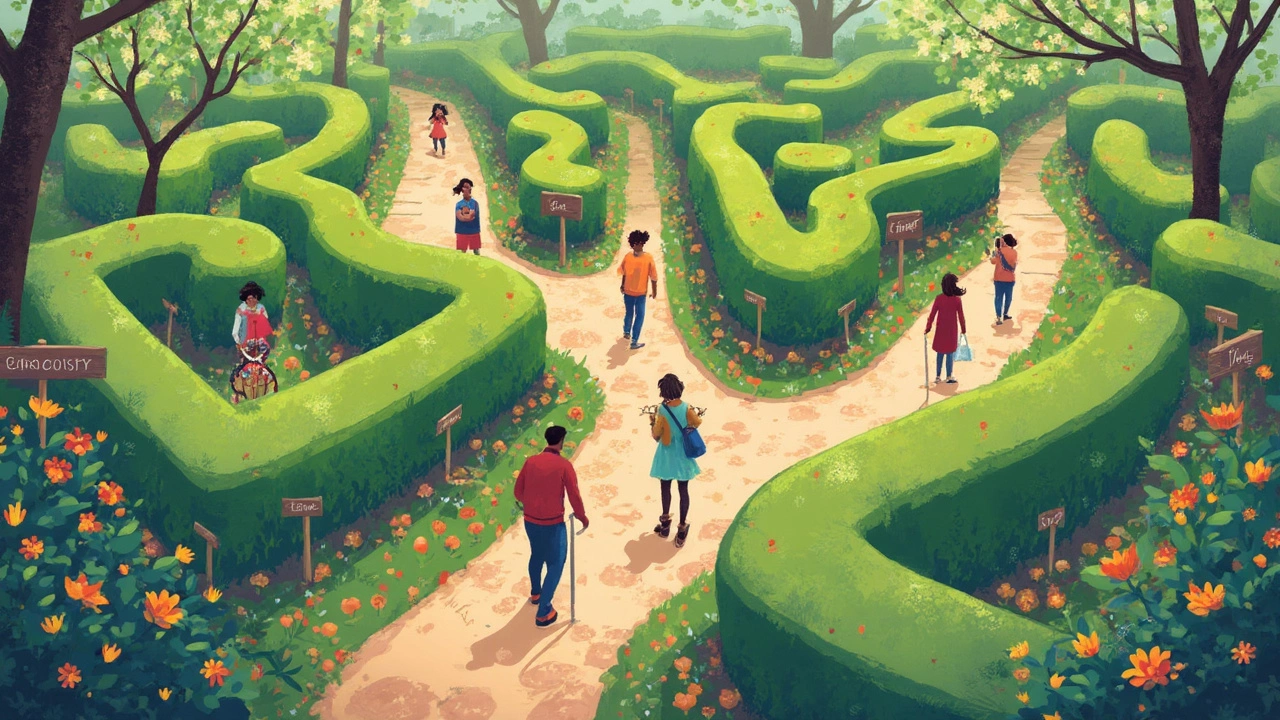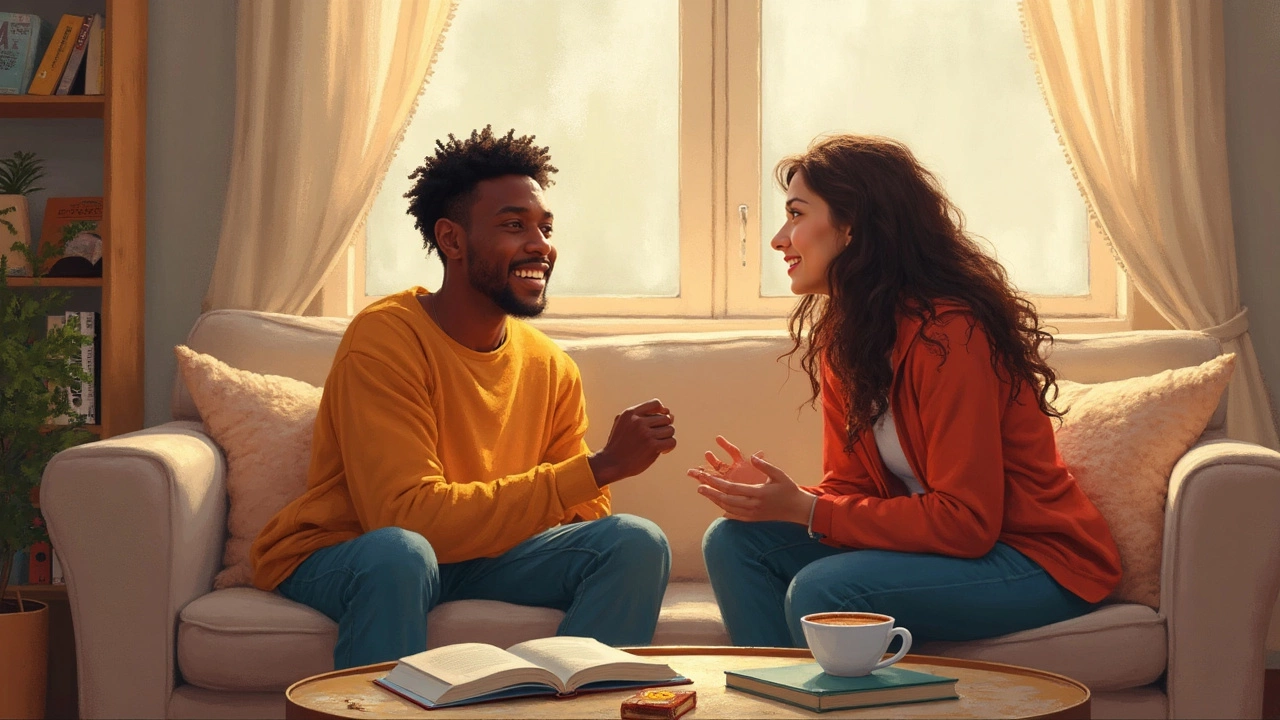Imagine if you learned to cook at 18 and never tried a new recipe again. You’d miss out on spices, new techniques, changing tastes, and things you never dreamed could come from your kitchen. Sex is a bit like that, only way more personal and even more fun to mess up and get creative with as you get older. But while we update everything in our lives—our phones, our jobs, even our wardrobes—we rarely think about updating what we know about sex. People keep pretending the learning phase ended at puberty class or, for the adventurous, after a few steamy novels. Not true. Adults need sex education even more than teenagers—because once it’s a real part of our lives, how we learn (and unlearn) affects everything.
Adult Sex Myths and Why Most Adults Are Still Guessing
By the time you hit adulthood, you’d think you have sex all figured out. The reality? Most people just get better at faking confidence than actually knowing what works (or what they like). A 2023 survey from the British Medical Journal found that 61% of adults admitted gaps in their sex knowledge, especially around consent, pleasure, and changing needs after 30. And if you tried to talk to friends about fetishes, safe kink, or simple tips for better pleasure, nine out of ten would probably give you a look like you’d started tap dancing at a funeral.
Here’s a wild fact: For most of us, our sex education stopped before we even started having sex. That leaves adults learning from porn, hearsay, and old assumptions that might have worked (or not) for someone else. The problem is, porn is basically staged fiction, and real-life partners aren’t mind readers. So you get folks muddling through the same old moves from when they were seventeen, hoping their partners don’t notice that the spark is looking a little, well, reheated.
And since society isn’t great at talking openly about adult sexuality, a lot of people bottle up questions they should be asking. What does good sex look like after kids, menopause, or a health scare? How do you navigate changing bodies, mismatched libidos, embarrassment, or even boredom? Far too many adults are still winging it or staying quiet. No wonder therapists and experts keep reminding us: Taking your sex life seriously isn’t about being wild or rebellious; it’s about being real and proactive.

What You Gain When You Keep Learning About Sex
If you think keeping up with new research and tips about sex is just for the awkward or the single, hold on. Even happy couples—like Martin and me—find surprises the longer we’re together. Learning about sex isn’t just fixing what’s broken. It’s actually a game-changer for emotional closeness, self-confidence, and even your health.
Here’s the thing: Sexuality doesn’t stand still. Our desires, energy, and even our bodies change as we move through life. A lot of us roll with these shifts, thinking it’s normal to slowly swap passion for daily routines. But research from Harvard Medical School (2022) discovered that couples who set aside time to talk and learn about sex report up to 35% higher satisfaction rates. That’s not just about orgasms. We’re talking greater empathy, reduced anxiety, and better communication all-around.
Learning also blows apart old myths. Remember those tired stories about what men and women “want” in bed? Science says: scratch that. The more adults explore honest, updated resources, the more they realize there’s no single formula for satisfaction. Gender assumptions, body shame, even basic ideas about consent—all of these can be challenged, improved, and redefined. It’s wild how liberating it feels when you stop basing your confidence on what you think should happen and actually ask or learn what really works for you and your partner.
Tips, you ask? Here are a few that actually help in real life, not just theory:
- Give your bedroom playlist an upgrade: Try music recommended by actual sex therapists, not just your old favorites. What you listen to can make things surprisingly different.
- Use books meant for adults, not for college kids. Books like "Come as You Are" by Emily Nagoski or "The Guide to Getting It On" pull no punches and actually address real worries and pleasures of adults.
- Practice check-ins with your partner: Sexy doesn’t always mean spontaneous. “What do you want to try this month?” is one question that changed my marriage, for real.
- Try roleplay or fantasy sharing. This isn’t only for the adventurous. Sharing a scenario you’re curious about can spark all sorts of new connections. Who cares if you laugh the first time?
- Take breaks from porn. Or watch as a couple, if you both want. Either way, talk about what seems fun and what not to bring to your real bedroom. It makes a bigger difference than you’d expect.
- Read up on boundaries together, not just alone. Even in long relationships, saying ‘yes’ (and especially ‘no’) out loud builds trust and confidence.
Ever heard the phrase "the more you know, the better it gets"? It's true. Not just for intimacy either. People who keep learning about sex report better mental health, more creative problem-solving, and higher self-esteem across the board. It sounds too good to be true—until you try it in real life.

Resources, Real Talk, and Why Curiosity Keeps You Safe and Satisfied
Sometimes, learning about sex as an adult means going outside your comfort zone. Not everyone wants to sign up for workshops or group discussions (though plenty of people do, and love it). But you can also learn by listening to experts on podcasts, reading trusted websites, or exploring conversations with people who really know what they're talking about, like sex workers or educated London escorts. These are people who have seen just about every kind of human sex drive in action, and they often share stories and advice that regular textbooks just can't touch. I once read an interview with a London-based escort who broke down practical communication tools for shy clients—tips that everyone, coupled or single, could use. That level of honest, shame-free discussion is gold when you’re trying to ditch old sexual hangups.
There’s also safety to consider. As we grow up, our risk factors change. A lot of couples stop thinking about STIs once they’re past a certain age or assume they’re “too old” for such worries. Wrong. The UK Health Security Agency reported a 13% increase in STIs among people over 35 in 2024. Part of the problem? Nobody tells adults to keep talking about protection. Good education keeps you safer, no matter your relationship status.
So, where should you look if Google and clickbait headlines are getting you nowhere? Stick to resources written by qualified sex educators, real-life therapists, and yes, sometimes even experienced escorts. Support groups—both online and offline—can be great, especially for those who feel isolated, asexual, or out of sync with mainstream ideas. Podcasts like “Sex with Emily” or “The Pleasure Mechanics” dig into topics you might not even realize matter until you hear other adults admitting they’re confused, too.
If you’re into data, check out this quick look at satisfaction and conversation rates among adults who keep learning sexually:
| Group | Regularly Learn About Sex | Report High Satisfaction | Comfort Discussing Sex |
|---|---|---|---|
| Age 25-34 | 45% | 68% | 74% |
| Age 35-54 | 32% | 59% | 62% |
| Age 55+ | 19% | 51% | 44% |
These numbers aren’t just percentages—they show a clear pattern: the more you stay curious, the happier and safer you’ll be. It’s never too late to upgrade your understanding. Even people in their 70s report discovering new preferences and sources of pleasure, just by refusing to coast on old habits.
I’ll admit, my own relationship with Martin isn’t always fireworks. But it’s far richer now that we talk openly, swap tips, and sometimes laugh our way through learning. Sex for adults isn’t about performing or meeting wild expectations. It’s about being genuine. Staying curious is the difference between going through the motions and actually having fun. True confidence—the kind that makes intimacy satisfying instead of stressful—only comes when you keep exploring, keep asking, and keep learning. Nobody ever really graduates.
